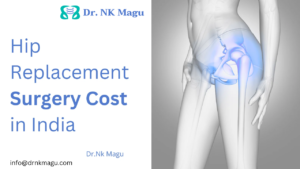Tooth Pain That’s Hard to Pinpoint? Don’t Guess in Bridgend
We’ve all experienced some form of dental discomfort in our lives. But when the pain is vague, shifting, or hard...

We’ve all experienced some form of dental discomfort in our lives. But when the pain is vague, shifting, or hard to locate, it can be more than frustrating—it can be genuinely concerning. Unidentified tooth pain can disrupt daily routines, affect sleep, and even lead to more serious health complications if left untreated.
In Bridgend, many residents deal with this type of mysterious toothache, not knowing whether it’s a minor issue or something more urgent. Rather than guessing or delaying action, it’s essential to understand what might be causing your pain—and when to seek professional help. In this guide, we’ll explore the potential causes of untraceable tooth pain and discuss how local dental professionals can help.
What Does “Untraceable” Tooth Pain Mean?
Tooth pain that’s hard to pinpoint doesn’t follow the usual pattern of a cavity or visible damage. It may:

- Come and go throughout the day
- Radiate across the jaw, ear, or sinuses
- Feel deep or dull rather than sharp
- Seem to switch from one tooth to another
This kind of discomfort often confuses patients because the pain doesn’t stay in one place. It can mimic tension headaches, sinus pressure, or even ear infections. That’s why professional assessment is key.
Common Causes of Tooth Pain Without a Clear Source
Let’s break down some of the possible reasons behind your hard-to-locate dental pain:
1. Cracked Tooth Syndrome
Sometimes a tooth has a hairline fracture that isn’t visible on X-rays. You might feel pain when chewing or when the tooth is exposed to temperature changes. Because the crack can affect different nerves depending on the pressure or angle, the pain seems inconsistent.
2. Referred Pain
The body’s nervous system is complex. Pain from one area can be perceived in another. For example, an issue with a lower molar might feel like pain in the upper jaw. Similarly, a problem with your temporomandibular joint (TMJ) can present as tooth pain.
3. Sinus Infection
Your upper back teeth are located near your sinus cavities. When you have a sinus infection or inflammation, pressure in the sinuses can make it feel like your teeth are aching—particularly the molars.
4. Gum Disease
Although not always painful in the early stages, advanced gum disease (periodontitis) can cause swelling, infection, and even abscesses that manifest as tooth pain. The discomfort may not feel tied to a single tooth.
5. Tooth Grinding (Bruxism)
Grinding your teeth at night can wear down enamel and irritate the nerves in your teeth. The result? Soreness across multiple teeth with no clear origin.
When to Take Action
Tooth pain is your body’s way of signaling that something is wrong. Ignoring it can lead to serious complications, including infections that spread to other parts of the body. Here’s when you should stop guessing and see a professional:
- The pain lasts more than two days
- You experience swelling in the face or gums
- Pain is interfering with eating, speaking, or sleeping
- You develop a fever or feel generally unwell
- You’ve recently had dental work and the discomfort persists
Early diagnosis often means simpler, less invasive treatment. Whether it’s a cracked tooth or an abscess, addressing the issue promptly is critical.
Your Local Options for Relief in Bridgend
If you’re dealing with mystery tooth pain in Bridgend, you’re not alone—and you’re not without support. Several dental professionals specialize in identifying and treating elusive symptoms. Two key services stand out:
1. Emergency Dental Services
Sometimes, that strange tooth pain intensifies quickly or strikes outside of regular hours. That’s when you need immediate care. Seeing an emergency dentist in Bridgend ensures fast assessment, accurate diagnosis, and relief—whether it’s a hidden infection, abscess, or something more complex.
Emergency dentists are trained to handle the unexpected, offering not just treatment but also peace of mind when symptoms spiral or become unbearable.
2. Hygiene-Focused Dental Care
Chronic or subtle pain can sometimes be related to issues with oral hygiene, including tartar buildup, inflamed gums, or early-stage decay. A hygienist in Bridgend can provide a thorough cleaning and examination, helping you eliminate bacterial causes of discomfort and prevent long-term problems.
Regular visits to a hygienist also reduce the risk of gum disease, which is a common but underestimated cause of generalized oral pain.
What to Expect at Your Appointment
If you’re nervous about visiting a dentist for an unclear issue, here’s what to expect during your consultation:
1. Medical and Dental History Review
You’ll discuss your symptoms, medical background, and any recent treatments or changes in your health.
2. Comprehensive Examination
Your dentist may perform several checks, including:
- Tapping on teeth to check sensitivity
- X-rays to view internal structures
- Thermal or electrical tests to gauge nerve activity
- Gum measurements to assess for periodontal disease
3. Diagnosis and Treatment Plan
Once the cause is identified, your dentist will suggest a tailored plan. This may include:
- A filling or crown for a cracked tooth
- Antibiotics or root canal for infection
- Mouthguard for teeth grinding
- Referral to a specialist, if needed
Remember: even if your pain is subtle, the underlying issue might not be.
Tips to Prevent Tooth Pain from Returning
After you’ve found relief, here are some tips to maintain oral health and avoid future surprises:
- Practice good hygiene: Brush twice daily, floss, and use a fluoride rinse.
- Visit your hygienist regularly: Professional cleaning helps prevent hidden decay or gum disease.
- Wear a night guard if grinding: This protects your enamel and reduces nerve irritation.
- Stay hydrated: Saliva helps neutralize acids and wash away debris.
- Eat a balanced diet: Limit sugary snacks and beverages.
When Pain Isn’t About the Teeth
Sometimes, dental pain is rooted in issues outside the mouth. TMJ disorders, nerve pain (such as trigeminal neuralgia), or even heart conditions can mimic tooth pain. A good dental professional will rule out oral causes first—and refer you to a medical specialist if needed.

This is another reason why self-diagnosing or relying solely on over-the-counter remedies can be risky. If in doubt, get checked.
Conclusion
Unexplained tooth pain should never be ignored. In Bridgend, you’re fortunate to have easy access to dental specialists who can quickly diagnose and treat even the most elusive oral discomforts. Whether you require urgent intervention or a thorough cleaning to uncover the cause, taking prompt action is the smart move for your long-term health. Choose expertise, act early, and trust your local professionals to guide you to relief.
EDA Group is here to help you smile again—without the mystery and without the pain.





